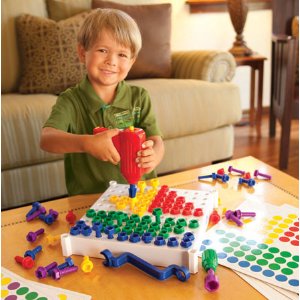There are many reasons, parents may decide to homeschool as I talked about it before in Why Some Parents Choose To Homeschool? In olden days before there were any official school system or mandatory education in those systems, parents taught what they knew to their children, be it what type of work they did, how to cook, clean and survive and so on. That was kind of education at home for that time. Many of famous people around a few hundred years ago were homeschooled, there was no surprise as it was the norm then before schooling system came in to picture.
According to wikipedia and NCES (National Center For Education Statistics) survey done around 2007 shows following data. While it has now been 2013, information is important to know.
In the 2003 and 2007 NHES, parents were asked whether particular reasons for homeschooling their children applied to them. The three reasons selected by parents of more than two-thirds of students were concern about the school environment, to provide religious or moral instruction, and dissatisfaction with the academic instruction available at other schools.
From 2003 to 2007, the percentage of students whose parents reported homeschooling to provide religious or moral instruction increased from 72 percent to 83 percent. In 2007, the most common reason parents gave as the most important was a desire to provide religious or moral instruction (36 percent of students). This reason was followed by a concern about the school environment (such as safety, drugs, or negative peer pressure) (21 percent), dissatisfaction with academic instruction (17 percent), and “other reasons” including family time, finances, travel, and distance (14 percent).Other reasons include more flexibility in educational practices and family core stability for children with learning disabilities or prolonged chronic illnesses, or for children of missionaries, military families, or families who move often, as frequently as every two years.
| Reason for homeschooling | Number of homeschooled students |
Percent | standard error |
|---|---|---|---|
| Can give child better education at home | 415,000 | 48.9 | 3.79 |
| Religious reason | 327,000 | 38.4 | 4.44 |
| Poor learning environment at school | 218,000 | 25.6 | 3.44 |
| Family reasons | 143,000 | 16.8 | 2.79 |
| To develop character/morality | 128,000 | 15.1 | 3.39 |
| Object to what school teaches | 103,000 | 12.1 | 2.11 |
| School does not challenge child | 98,000 | 11.6 | 2.39 |
| Other problems with available schools | 76,000 | 9.0 | 2.40 |
| Child has special needs/disability | 69,000 | 8.2 | 1.89 |
| Transportation/convenience | 23,000 | 2.7 | 1.48 |
| Child not old enough to enter school | 15,000 | 1.8 | 1.13 |
| Parent’s career | 12,000 | 1.5 | 0.80 |
| Could not get into desired school | 12,000 | 1.5 | 0.99 |
| Other reasons* | 189,000 | 22.2 | 2.90 |
The data numbers may have changed but reasons behind parent choosing to homeschool somewhat remains similar. What are your reasons for homeschooling?
10 Things to Consider Before you Start Homeschooling


